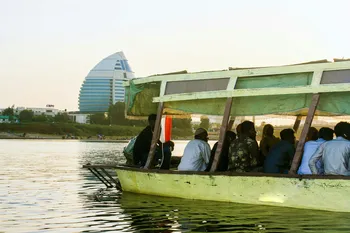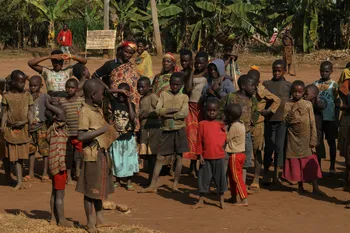
This funding aims to alleviate the severe humanitarian crises driven by conflict, displacement, food insecurity, and climate-related disasters.
Greater Horn of Africa: A Region in Crisis
In the Greater Horn of Africa, the EU will provide €107.5 million to assist communities severely impacted by ongoing conflicts, natural disasters, and forced displacement. Currently, nearly 70 million people in this region urgently require humanitarian assistance, representing over one-fifth of the global humanitarian needs.
The conflict in Sudan remains a critical driver of humanitarian emergencies, exacerbating displacement and food insecurity both within Sudan and across neighboring countries. The EU's funding will prioritize essential services, including food and nutrition support, healthcare, water, sanitation, hygiene, and education.
West and Central Africa: Persistent Instability and Humanitarian Challenges
West and Central Africa will receive €150.6 million to address the humanitarian crises intensified by persistent insecurity and conflict. The Central Sahel and Lake Chad regions remain epicentres of instability, with spill-over effects increasingly impacting coastal West African countries.
This funding will support critical humanitarian interventions, including emergency food assistance, livelihood support, healthcare, nutrition programs, and improved access to clean water and sanitation facilities. The EU's commitment underscores the urgency of addressing the complex and protracted crises affecting millions in the region.
EU's Comprehensive Humanitarian Response in Africa
This latest allocation brings the total EU humanitarian aid for Africa to €750 million in 2025. Earlier this year, the European Commission had already announced an initial €40 million for Ethiopia and €269 million specifically targeting the regional response to the Sudan crisis. Additionally, €78.5 million was previously allocated to address humanitarian needs in Mauritania and Chad.
The EU's humanitarian strategy emphasizes a comprehensive approach, addressing immediate needs while also supporting longer-term resilience and preparedness initiatives.
Commissioner's Statement: A Call for Urgent Action
"Across Africa, complex challenges, including security threats, political instability, and socio-economic disparities, are fuelling humanitarian crises. These crises displace entire communities and cause widespread food insecurity. The escalating effects of climate change are also intensifying vulnerabilities. The humanitarian and security situation is deeply concerning, as humanitarian partners face obstacles in reaching those in need. As humanitarian needs grow and resources become more limited, bridging this gap is becoming ever more urgent. The EU remains a reliable partner providing emergency assistance to Africa's most vulnerable populations."
— Hadja Lahbib, Commissioner for Equality, Preparedness and Crisis Management
Contextualizing the EU's Humanitarian Efforts
The European Union remains one of the world's leading humanitarian donors, consistently providing substantial financial support to regions facing severe humanitarian crises. According to the European Commission's Directorate-General for European Civil Protection and Humanitarian Aid Operations (DG ECHO), the EU's humanitarian assistance is guided by principles of humanity, neutrality, impartiality, and independence, ensuring aid reaches those most in need without discrimination.
In recent years, the EU has increasingly focused on integrating humanitarian aid with development cooperation, aiming to build resilience and reduce vulnerability to future crises. This integrated approach is particularly crucial in regions like the Greater Horn of Africa and West and Central Africa, where protracted crises require sustained and coordinated international responses.
Looking Ahead: Challenges and Opportunities
Despite the EU's substantial financial commitments, significant challenges remain. Humanitarian access continues to be hindered by insecurity, bureaucratic obstacles, and logistical constraints. Moreover, the global humanitarian funding gap continues to widen, underscoring the need for increased international cooperation and innovative financing mechanisms.
Moving forward, the EU and its international partners must continue to advocate for unhindered humanitarian access, increased funding, and strengthened local capacities to respond effectively to crises. Addressing the root causes of instability, including conflict resolution, climate adaptation, and sustainable development, remains essential for long-term stability and prosperity in Africa.
Further Information
For more details on the EU's humanitarian aid initiatives in Africa, visit the European Commission's Africa humanitarian aid page.







